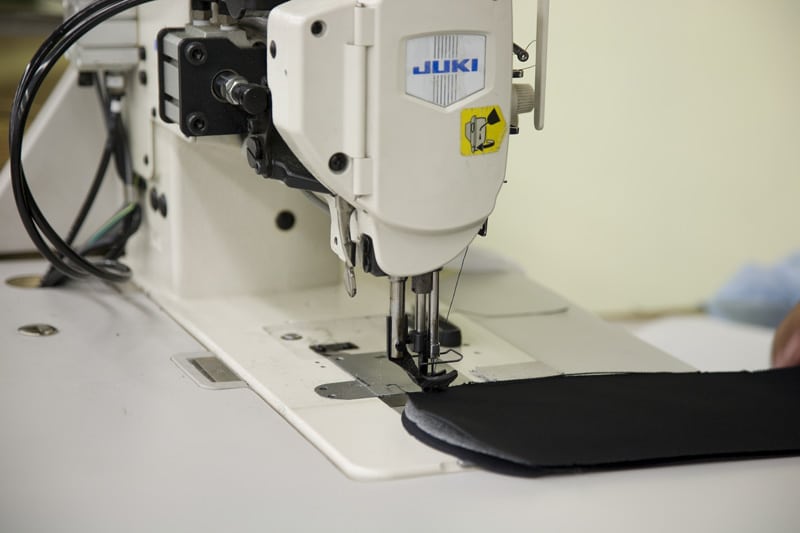How Is Industrial Sewing Different From Other Kinds of Sewing?

What is the Difference?
Industrial sewing is the process of attaching two pieces of specialty film or fabric by stitching them together using specialized industrial sewing machines. The main difference between industrial sewing and other kinds of sewing is that the industrial kind rarely involves clothing. Also, industrially sewn products tend to be heavy-duty or incorporate specialty materials like polyurethane-coated or vinyl-coated fabrics. There are other differences, too, but we’ll start with some similarities.
How Industrial Sewing is Similar to Traditional Sewing
Most other kinds of large-scale sewing operations, like those dedicated to making clothes or other fashion textiles, are usually more often focused on high volume, sometimes at the expense of quality. That’s not a criticism of those manufacturers because these firms fight to maintain their margins in the face of overwhelming competition from all across the globe. The nature of these textiles is such that they aren’t meant to last longer than a few years due to changing styles and cultural norms.
The process of uniting two flexible materials together is largely the same no matter what those materials are: a needle moves between the two fabrics with a thread, fastening them together. Look at whatever clothes you’re wearing, and you’ll see stitches. Though those are the most easily recognizable sewn products, you might be surprised by the variety of other sewn products.
Everything But Clothes (Mostly)
When an industrial sewing company like Vinyl Technology, for example, says that they do everything but clothes, it’s an easy and simple way to differentiate what they do from traditional, large-scale sewing operations. There’s a lot they have in common, yes, but the differences between them are significant.
- Life and Death. One quality that many of the industrially sewn products have in common is that they are frequently used to protect human life. The COVID pandemic taught us all about PPE (Personal Protection Equipment)–these items, like the “hug room” and similar isolation chambers, are created by industrial sewing companies. These products require a level of care and maximum quality assurance because the safety they provide is so important.
The reason we say “mostly” is because some of the products created by industrial sewing companies like Vinyl Technology include hazmat suits and anti-g suits. These products are kind of like clothing, except you don’t wear it for style but for survival.
- Precision. The nature of the products created in industrial sewing shop floors requires extremely exact, down-to-the-micron measurements. This isn’t just because a flaw can potentially result in catastrophe (though that is a concern), but because industrial sewing companies are specifically hired for their focus on extremely precise sewing capabilities. It always a matter of life and death–sometimes it’s just a matter of maximum exactitude.
- Certifications. Industrial sewing companies like Vinyl Technology go to great lengths to make sure their operations are compliant with certifications like the Berry Amendment. In order to do business with many government agencies, industrial sewing companies must comply with standards required by the US government and Department of Defense, such as the National Institute of Standards and Technology (NIST), The International Traffic in Arms Regulations (ITAR), Defense Federal Acquisition Regulation Supplement (DFARS). These are just a few examples.
In order to see what kinds of amazing things you can have sewn, get in touch with us today.

